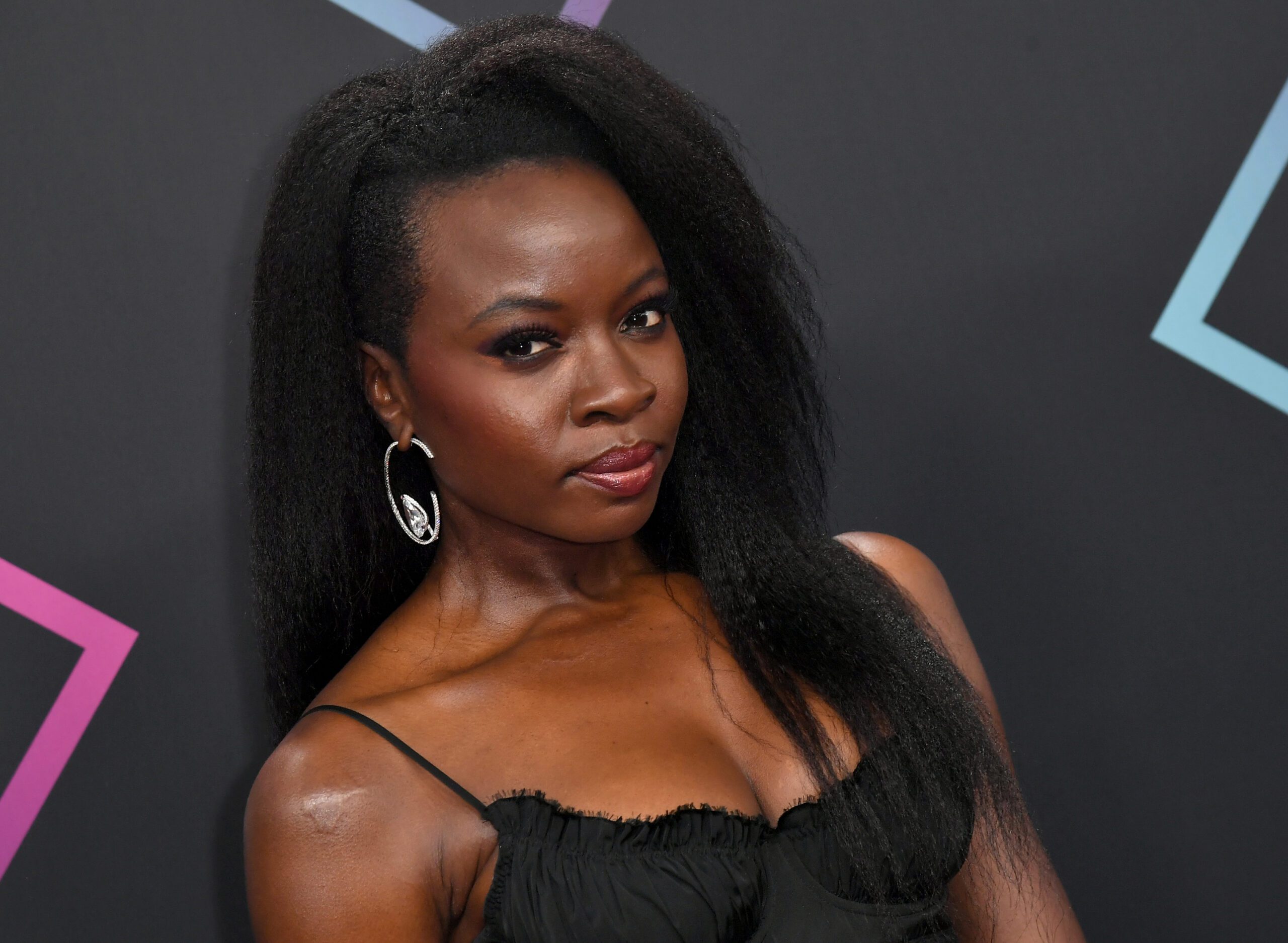Exploring the Writing Life of Danai Gurira:
Danai Gurira, a Zimbabwean American actress and playwright, has captivated audiences worldwide with her riveting performances in drama series and films, making “Danai Gurira movies and TV shows” a search term synonymous with excellence in storytelling and profound representation.
Best known for her roles in ‘The Walking Dead’ and the Marvel Cinematic Universe’s ‘Black Panther,’ Gurira embodies the spirit of Africa, gender and representation, challenging gender stereotypes through her powerful portrayals of African women in leading roles [1][2][3][4][5][6][7]. Her journey from Grinnell, Iowa, to the heights of Hollywood, while constantly connecting to her Zimbabwean roots, showcases a remarkable narrative of talent, perseverance, and impact that transcends geographical and cultural boundaries [1][2][3][4][5][6][7].
Beyond her on-screen prowess, Gurira is a celebrated playwright, contributing significantly to the dialogue on women storytellers, shining a light on stories from Zimbabwe, and addressing global issues that affect women.
Co-founder of Almasi Arts and Love Our Girls, her initiatives foster arts education in Zimbabwe and champion issues impacting women worldwide. These efforts, alongside her illustrious career spanning various genres from drama series to blockbuster films, underscore her commitment to storytelling that elevates and empowers, making Danai Gurira’s movies and TV shows a beacon for aspiring storytellers and actors [1][2][3][4][5][6][7].
Early Life and Inspiration
Danai Gurira’s journey into the world of acting and playwriting is deeply rooted in her diverse cultural experiences and academic pursuits:
- Foundational Years:
- Born to Zimbabwean parents in Grinnell, Iowa, Gurira moved to Zimbabwe at five, returning to the U.S. for higher education [1].
- She pursued a Bachelor of Arts in Psychology at Macalester College and furthered her studies with an MFA from New York University’s Tisch School of the Arts [1].
- Gurira’s multilingual abilities, speaking French, Shona, basic Xhosa, and English, reflect her rich cultural background [4].
- Cultural and Academic Influences:
- The transition back to the U.S. for college reintroduced Gurira to African authors and literature, sparking her interest in storytelling [8].
- Her early engagement with a children’s performing arts workshop in Zimbabwe laid the groundwork for her passion for the arts [10].
- A pivotal class on ‘arts and social change’ in South Africa ignited her playwriting journey, focusing on contemporary African narratives [11].
- Personal and Professional Development:
- Living between Los Angeles and New York City, Gurira balances her Christian faith with a bustling career in acting and writing [4].
- Inspired by her family’s history, particularly her father’s academic contributions as a chemistry professor and her mother’s role as a librarian, Gurira’s work often explores themes of identity and cultural heritage [4] [10].
- Her decision to tell stories from an African perspective is not only a tribute to her heritage but also a challenge to the industry’s narrative scope [11].
Transition from Acting to Writing
Danai Gurira’s transition from acting to writing was inspired by a desire for more significant roles that resonated with her artistic vision and personal experiences. This drive led her to create plays that not only provided her with the roles she sought but also addressed broader themes of identity, conflict, and resilience, particularly concerning African women.
- From Stage to Script:
- Broadway Beginnings: Gurira’s acting career took root in theater, highlighted by her Broadway debut in “Joe Turner’s Come and Gone” [1].
- Writing as a Necessity: Faced with a lack of roles that matched her ambition, Gurira began writing plays, starting with “In the Continuum” and “The Convert,” to create the work she wanted to see [9].
- Critical Acclaim: Her plays, including “Eclipsed” and “Familiar,” have garnered prestigious awards, such as the Obie Award and a Tony Award Nomination for Best Play [1].
- Impactful Narratives:
- Eclipsed: Set against the backdrop of Liberia’s civil war, this play explores the complex lives of five women, offering insights into the roles of women in war dramas and challenging the absence of African drama in Western canon [9].
- In The Continuum: Puts a human face on the AIDS crisis in Africa and America, focusing on the stories of two courageous women [9].
Danai Gurira’s dual career as an actress and playwright exemplifies her commitment to storytelling that amplifies underrepresented voices, particularly those of African women. Her work challenges stereotypes and opens up new spaces for dialogue and representation in the arts [1][9].
Impact of ‘The Convert’ and Other Plays
Danai Gurira’s theatrical works, particularly “The Convert,” have significantly impacted the theater scene, challenging perceptions and inspiring a new generation of creatives. Her plays delve into complex themes, resonating with audiences and critics alike, fostering a deeper understanding of African narratives and experiences.
- Critical Reception and Influence:
- “The Convert” received critical acclaim, earning six Tony nominations for “Eclipsed” and inspiring a wave of writers, actors, and directors [13][15].
- The play’s exploration of cultural assimilation, identity, and the weaponization of Christianity has sparked discussions on colonial impacts and indigenous practices [15].
- It has been a catalyst for change, encouraging the theater scene to value and include diverse stories [15].
- Historical and Cultural Context:
- Awards and Recognition:
Representation and Diversity in Gurira’s Work
- Championing African Women’s Stories:
- Danai Gurira’s commitment to sharing the narratives of African women is evident in her work, especially in plays like “Eclipsed” which is based on her interviews with women impacted by the Liberian civil war [13].
- Her storytelling challenges the traditional notion of “minority stories,” advocating that truthful storytelling transcends cultural and geographical boundaries, resonating universally [13].
- Advocacy Through Fashion:
- Breaking Stereotypes and Promoting Diversity:
- “Eclipsed” stands out as Gurira’s bold decision to feature an all-female cast, focusing on women’s experiences and perspectives, a rarity in the realm of theater [8].
- The production of “The Convert” faced challenges due to a limited pool of black students interested in acting at Cambridge, highlighting the pressing need for diversity and representation in the arts. This effort was a significant stride towards inclusivity and showcasing African narratives [15].
Gurira’s Role as a Cultural Ambassador
Danai Gurira’s multifaceted role extends beyond her on-screen performances, positioning her as a cultural ambassador through her activism and advocacy work. Her endeavors are not just a testament to her commitment to storytelling but also to her dedication to fostering understanding and change.
- Activism and Advocacy:
- Co-founder of Almasi Arts and Love Our Girls, focusing on arts education in Zimbabwe and global issues affecting women and girls [1].
- As a UN Women Goodwill Ambassador, Gurira champions gender equality and women’s empowerment, leveraging her platform to highlight African women’s stories and challenge stereotypes [1][16].
- Recognition for her impactful work includes the TIME100 Impact Award, acknowledging her contributions to storytelling and advocacy [16].
- Cultural Engagement:
- Almasi Collaborative Arts and Love Our Girls serve as platforms to mobilize communities and address injustices, particularly those faced by women and girls [1][4].
- Through her multilingual abilities (French, Shona, basic Xhosa, and English), Gurira transcends cultural boundaries, fostering empathy and understanding [1].
- Campaigns and Initiatives:
- Participation in the Unstereotype Alliance’s Say Nothing, Change Nothing campaign encourages challenging stereotypes and cultivating curiosity about different cultures [17].
- As part of her role with UN Women, Gurira focuses on dismantling gender norms and harmful stereotypes, with a new campaign set to launch in summer 2021 [18].
Conclusion
Danai Gurira’s illustrious journey in film, television, and theater serves not only as a testament to her remarkable talent and persistence but also as a blueprint for challenging and transforming storytelling norms. Her seamless transition between acting and writing underscores a powerful narrative of African women’s representation, bringing under-explored stories to the forefront of global culture. The impact of Gurira’s work, from the stages of Broadway to the screens of Hollywood, reverberates beyond entertainment, fostering a deeper appreciation for diversity and the complexities of the human experience across different cultures and geographies.
As Gurira continues to champion the narratives of African women through her multifaceted career, her actions echo a broader call to action, emphasizing that women can write, act, and produce their own stories, shaping their destinies within the creative industry. This message is a cornerstone for aspiring storytellers and advocates for diversity and inclusion, urging them to forge paths that challenge prevailing narratives and stereotypes. Gurira’s role as a cultural ambassador and advocate is not just a career highlight but a beacon for future generations, illustrating the critical importance of storytelling in shaping understanding, empathy, and change across the globe.
References
[1] – https://en.wikipedia.org/wiki/Danai_Gurira
[2] – https://kids.britannica.com/students/article/Danai-Gurira/635406
[3] – https://www.empireonline.com/people/danai-gurira/
[4] – https://www.britannica.com/biography/Danai-Gurira
[5] – https://www.rottentomatoes.com/celebrity/danai-gurira
[6] – https://www.unwomen.org/en/partnerships/goodwill-ambassadors/danai-gurira
[7] – https://www.gq.com/story/gq-hype-danai-gurira
[8] – https://www.yahoo.com/lifestyle/walking-dead-star-danai-gurira-131706134.html
[9] – https://sites.google.com/nyu.edu/contemporaryplaywrightsofcolor/danai-gurira
[10] – https://www.marintheatre.org/productions/the-convert/convert-danai-gurira-interview
[11] – https://www.centralsquaretheater.org/2015-16-season/articles/interview-with-danai-gurira/
[12] – https://www.hollywoodreporter.com/news/general-news/danai-gurira-power-diversity-1169093/
[13] – https://www.harpersbazaar.com/culture/features/a15608/danai-gurira-walking-dead-actress-to-revolutionary/
[14] – https://www.dramaandtheatre.co.uk/review/article/review-the-convert-by-danai-gurira
[15] – https://www.adctheatre.com/blog/posts/one-year-on-looking-back-at-the-convert/
[16] – https://time.com/collection/time100-impact-awards/6333914/danai-gurira-african-women-stories/
[17] – https://www.rollingstone.com/tv-movies/tv-movie-features/danai-gurira-black-panther-stereotypes-un-say-nothing-change-nothing-campaign-1234802533/
[18] – https://midlifeslices.com.au/videos/unstereotype-with-un-ambassador-danai-gurira/
[19] – https://stillwerise.uk/2020/09/19/danai-gurira/







